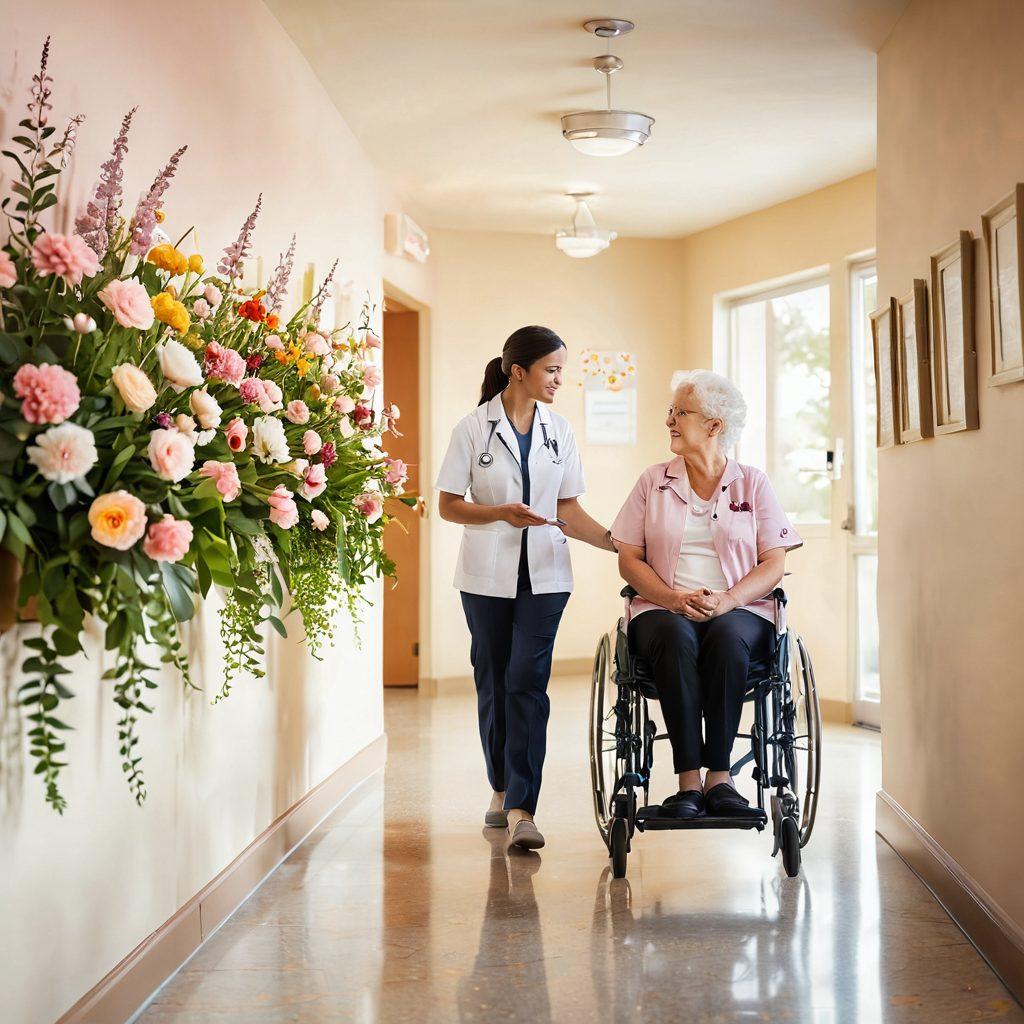Navigating the Cancer Journey: Expert Insights on Treatment Options and Patient Advocacy
Navigating the labyrinth of a cancer diagnosis is one of the most daunting experiences an individual or family can face. The words ‘malignancy’ and ‘carcinoma’ can shatter lives and instill fear in the hearts of even the bravest souls. However, in this journey, each patient has the power to navigate their treatment paths with the help of compassionate oncologists and the invaluable support of patient advocacy. It’s imperative to remember—though the road may be rugged, there are multiple paths available for treatment, each paved with hope, resilience, and the promise of modern medicine.
Oncology has progressed remarkably over the years, providing a plethora of treatment options for cancer patients. Treatments such as chemotherapy, radiation therapy, and immunotherapy have each carved a niche in the fight against tumors. Consider this: what if your oncologist presented you with an array of options tailored specifically to your diagnosis? The latest findings from medical research reveal that personalized treatment plans have transformed the prognosis for many individuals facing a similar fate. This is where patient advocacy becomes paramount—ensuring that each voice is heard, that each need is met, and that every patient has access to the necessary resources.
But the journey isn’t solely about traditional medicine. Holistic therapies and lifestyle changes are increasingly recognized in cancer care. Nutrition plays a significant role in a patient’s overall well-being, influencing their response to treatment and aiding in recovery. As we engage in meticulous research about cancer prevention and survivorship, we must ask ourselves: how can we optimize our health through food, exercise, and mental health support? The answer lies in the integration of wellness programs, support groups, and educational resources—allowing patients to thrive beyond their diagnosis.
Moreover, participation in clinical trials presents another powerful avenue for patients. These trials explore cutting-edge therapies that could make all the difference and might even usher in miraculous treatment options for future patients. Engaging with the healthcare community through expert interviews and community outreach can demystify these opportunities. For many, the question remains: how can one transition from a diagnosis to empowerment as advocates for themselves and others? The answer is grounded in persistent inquiries, seeking knowledge, and connecting with other individuals facing similar challenges.
In conclusion, navigating the cancer journey requires resilience, awareness, and a network of allies—oncologists, patient advocates, and fellow survivors. Together, they form an unparalleled support system, driving awareness campaigns, fundraising efforts, and educational seminars that nurture a community bound by shared experiences. It’s not merely about surviving; it’s about thriving! So ask yourself, how will you choose to navigate your treatment path today, armed with the knowledge of options available and the unwavering support of those around you?
Empowering Survivorship: Insights into Cutting-Edge Therapies and Support Systems
Empowering survivors of carcinoma and other malignancies is a journey that intertwines expert insights, patient advocacy, and the latest treatment options. For many, the daunting world of oncology can feel overwhelming, with a wealth of information that sparks both hope and confusion. But there's so much to unpack! From groundbreaking immunotherapy to traditional chemotherapy and radiation therapy, the evolution of cancer treatments is nothing short of remarkable. How can we navigate this complex landscape and emerge more empowered on the other side?
Take a moment to reflect on the stories of survival that inspire us all. There’s a certain strength in shared experiences, isn’t there? Picture this: a brave woman strides into her oncologist's office, armed not just with a diagnosis but with knowledge from health education programs and cancer support groups. The dialogues between patients and healthcare professionals are evolving; they are no longer one-sided. With access to clinical trials and the latest findings from medical research, individuals are challenging the status quo. They are not just passive recipients of palliative care but active participants in their journey towards wellness and survivorship.
What if we could elevate this narrative even further? Imagine communities coming together for awareness campaigns and community outreach, aimed at not just supporting individuals but also educating families about cancer prevention and screening. Life after a diagnosis doesn’t stop; it transitions into a new chapter filled with potential lifestyle changes that promote holistic health. Simple choices around nutrition and mental health can yield profound benefits for recovery and resilience. So, how can we continue fostering this sense of community while exploring alternative medicine and holistic therapies that resonate on a personal level?
Let's not overlook the rewards of resilience when it comes to participating in wellness programs or engaging in fundraising efforts. Take the story of John, a cancer survivor who, after battling through chemotherapy and a series of treatment options, found his calling in advocacy. His passion not only supported his healing process but became a beacon of support for others navigating through similar experiences. In sharing his journey and encouraging others to become patient resources, he created a ripple effect of empowerment and hope. Are there stories like John's in your community waiting to inspire?
Every journey through the world of oncology is unique, yet the desire for survival is universal. We must prioritize not only individual needs but also collective strength. Whether you are new to this journey or someone that's already traveled it, know that resources abound. Engage with local cancer support groups, seek out expert interviews, and embrace educational opportunities that arm you with knowledge. The road to survivorship involves understanding your options, from clinical trials to the latest therapies, and advocating for better care. How will you take charge of your narrative and drive your journey forward today?
From Diagnosis to Wellness: A Comprehensive Guide to Cancer Support and Resources
Navigating the cancer journey can feel like sailing through a stormy sea. One moment, you're anchored in the calm of a routine check-up, and the next, you're grappling with the tumultuous news of a tumor diagnosis. It’s a challenge that many face, and for those newly diagnosed with a carcinoma, the immediate whirlwind of emotions and decisions can be overwhelming. This guide aims to chart a course from that initial diagnosis to a state of wellness, providing vital insights into support and resources that can transform the patient experience into one marked by empowerment rather than fear.
Once the diagnosis is in, the terms oncology, malignancy, and immunotherapy swirl around your head like confetti. It’s crucial to grasp the various treatment options available, including chemotherapy and radiation therapy. But before making any decisions, consider taking a deep breath, as the best course of action often starts with building a strong relationship with your oncologist. Ask questions like, 'What are the potential side effects?' or, 'Are there clinical trials I could qualify for?' Having open conversations with your healthcare team ensures you are well-informed and ready to tackle the daunting reality of treatment options available for your specific situation.
Patient advocacy plays a pivotal role in the cancer journey. Each step, from diagnosis to survivorship, requires clear information and support. Engage actively in your healthcare journey; participate in cancer support groups where you can share experiences with fellow warriors, or join community outreach programs that focus on cancer prevention and awareness campaigns. Remember, you are not alone. The bonds formed in these spaces can foster hope and camaraderie, reinforcing that strength lies in numbers and that healing extends beyond just physical recovery to include mental health and wellbeing as well.
As you consider lifestyle changes and nutrition to complement your clinical treatments, don't overlook the power of holistic therapies and alternative medicine. Integrating these practices can create a multidimensional approach to your health. Consider the impact of stress-reduction techniques like meditation or yoga, which can enhance your quality of life during treatment. After all, survivorship isn’t simply about surviving the illness, but about thriving in your life post-treatment. How will you redefine wellness once treatments conclude? What supports will you rely on to maintain your newfound vitality?
Lastly, it's essential to stay abreast of medical research. Expert interviews in the area of oncology can reveal the latest findings that may be relevant to your treatment options. Engaging with patient resources, participating in fundraising initiatives, and having regular screenings can empower your journey toward health. Equip yourself with knowledge, resources, and a supportive community as you transition from diagnosis to wellness. The quest for healing is indeed a collective effort and ultimately, one of profound hope.


